Farm-to-table dining may now be a ubiquitous food concept, but farm-to-plane cuisine is just taking off.
Singapore Airlines’ new produce-heavy meal service, which launched on October 1, allows business class passengers on the 19-hour Newark to Singapore route to enjoy a fresh treat.
Partnering with AeroFarms – an indoor farm where food is produced in vertically stacked layers that’s located just miles from Newark-Liberty International Airport – Singapore Airlines is delivering a high-quality dining experience that’s also the absolute freshest it can be.
Passengers won’t find any limp, tasteless produce on board this carrier.
Singapore Airlines introduced the farm-to-plane idea internally almost two years ago with a two-fold purpose, according to the airline’s food and beverage director, Antony McNeil.
“We wanted to be more sustainable and reduce our carbon footprint by using hyper-local produce, and we wanted the in-flight food to taste as vibrant as possible,” he says. “We’re always trying to innovate when it comes to on-board dining so AeroFarms was a great fit.”
Vertical farming
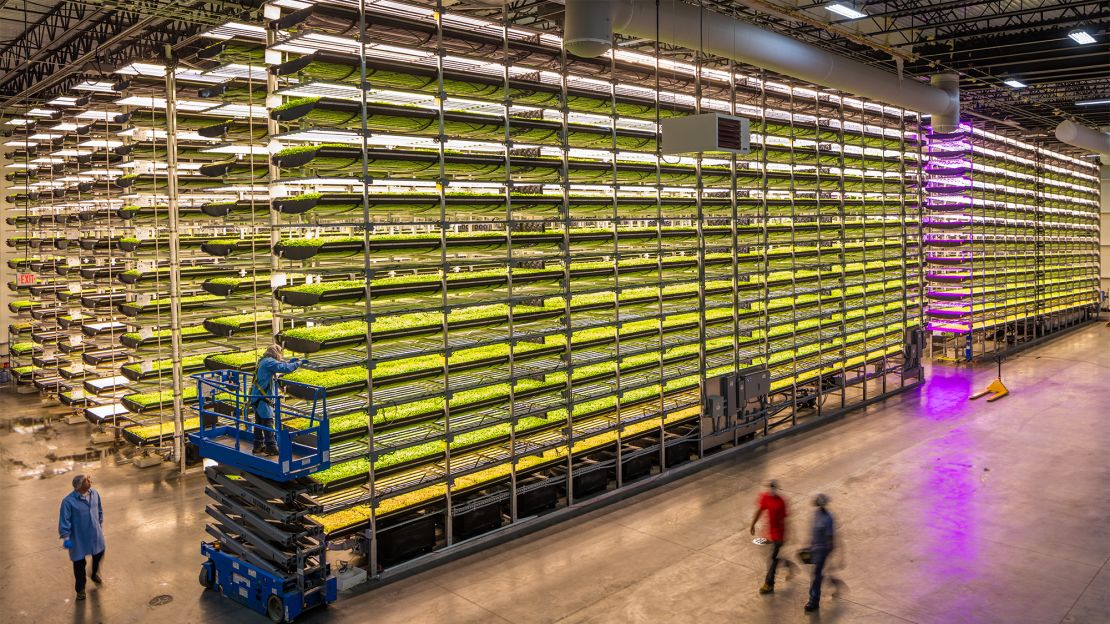
AeroFarms, founded in 2004, isn’t new, but its agricultural approach is pioneering. Greens are managed from seed to package and sold to select retailers and restaurant groups under the brand name Dream Greens. The indoor farming practice utilizes 95% less water than field-farmed food, and boasts a much higher yield.
The Singapore Airlines partnership is the latest venture for the environmentally responsible farm.
Marc Oshima, co-founder and AeroFarms’ chief marketing officer, explains how the companies connected: “The partnership with Singapore Airlines came out first and foremost around a shared vision and values in terms of the kind of impact, the kind of responsibility we want to have.”
Spanning more than 70,000 square feet and spread among three-and-a-half acres on a plot of land that’s less than five miles from the airport, AeroFarms, set in an industrial part of town, claims to be the world’s largest vertical farm.
“We don’t need to use pesticides, herbicides or fungicides,” adds Oshima.
Instead of relying on sun and soil like a traditional farm, AeroFarms grows its produce year-round in rooms with 40-foot-tall ceilings using LED lights and cloth made from recycled water bottles.
In place of the watering that’s required with field-farmed food, AeroFarms’ farmers mist the roots of everything that grows. It’s a technique that allows around 700 varieties of fruits and vegetables to harvest in 10 to 14 days, compared with the 30 to 45 days of traditional farming methods.
Farm-to-plane
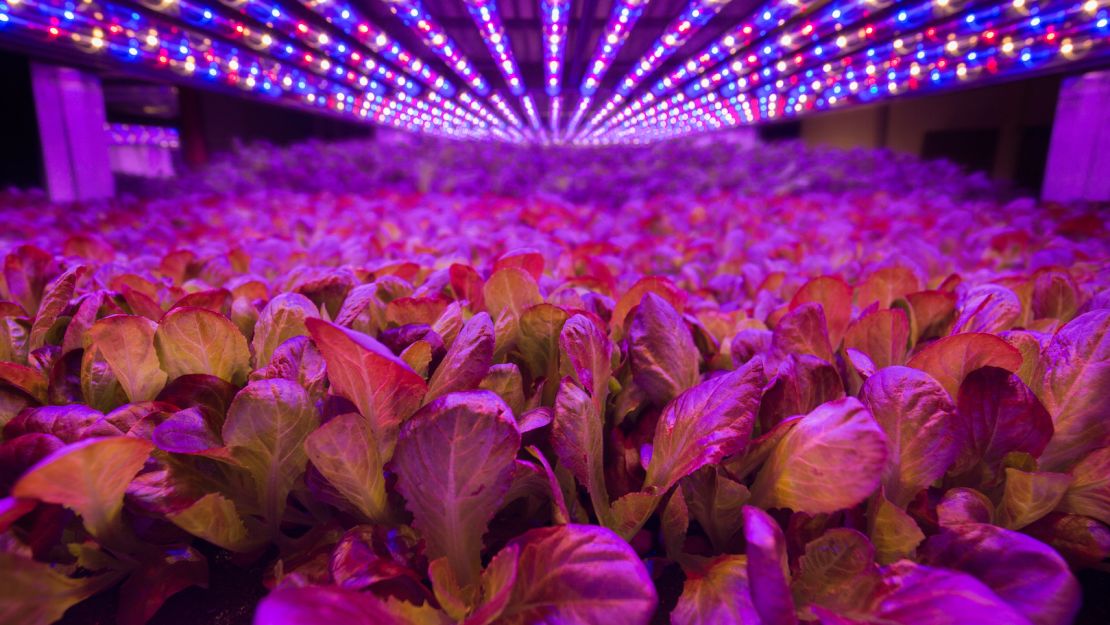
For now, though, only business class passengers will taste the farm-to-table meals. The airline has been sourcing the bulk of its produce for the daily Newark to Singapore route from California and Mexico, particularly during the winter months when northeast produce options plummet.
But Singapore Airlines’ McNeil says the airline is hoping to introduce AeroFarms’ produce to premium economy class riders as well, in good time.
The Newark to Singapore route – considered the world’s longest flight – only has business and premium economy class, and a roundtrip ticket for the latter costs around $1,500.
Those with a business class ticket from Newark to Singapore can expect a hyper-fresh, flavor-packed meal, grown just a few miles from their point of departure.
“The produce will make its way into the dishes within hours and up to no more than a few days of being harvested and delivered to our kitchens,” says James Boyd, a spokesperson for Singapore Airlines (the airline expects to receive deliveries from AeroFarms several times a week).
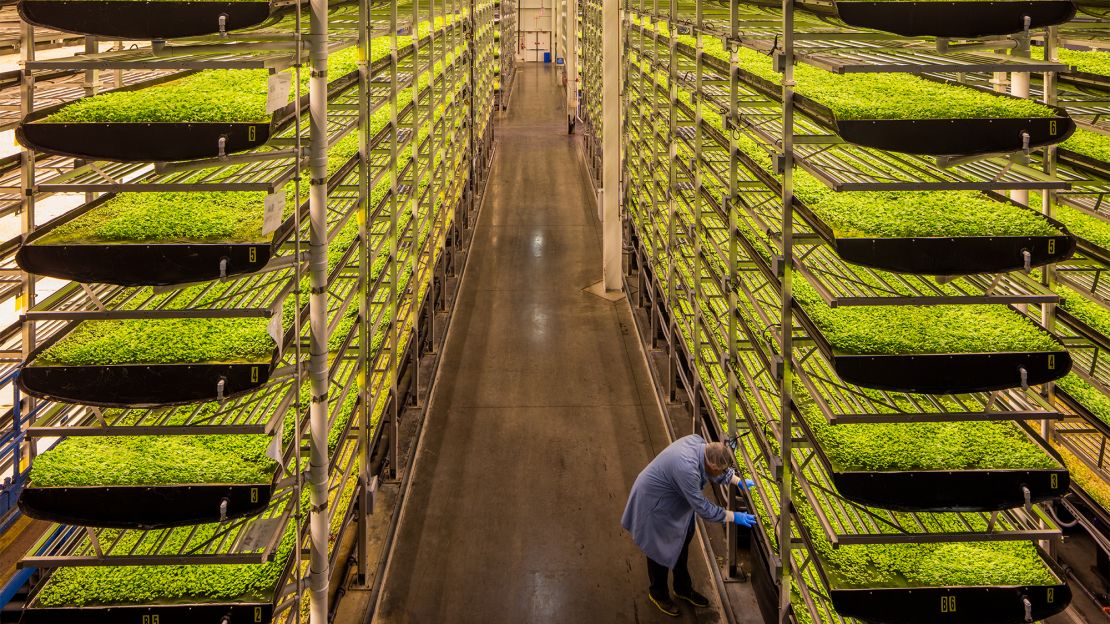
Arugula, one of AeroFarms’ favorite greens, is esteemed for its strong pepper notes, and just a nibble of it packs a surprising punch. This burst of flavor is exactly what Singapore Airlines is going for, especially given the diminished palate at altitude. So arugula is among the first of Singapore Airlines’ farm-to-plane offerings.
The dish of heirloom tomatoes, cured Iberico ham (the Wagyu beef of ham, according to McNeil), grilled palm hearts and spiced tomato dressing, can be ordered online in advance and modified for dietary restrictions. McNeil suggests pairing it with a glass of “very light Chardonnay… [or] beautiful sake.”
In November, passengers may choose to sip Champagne, which McNeil recommends with the garden salad. This dish will feature Aerofarms Mixed Salad Greens, drizzled with a French-inspired lemon vinaigrette, along with asparagus for texture and crunch, broccolini, prized for its bitterness, creamy avocado for a comforting, indulgent note, and hot smoked salmon.
Green envy
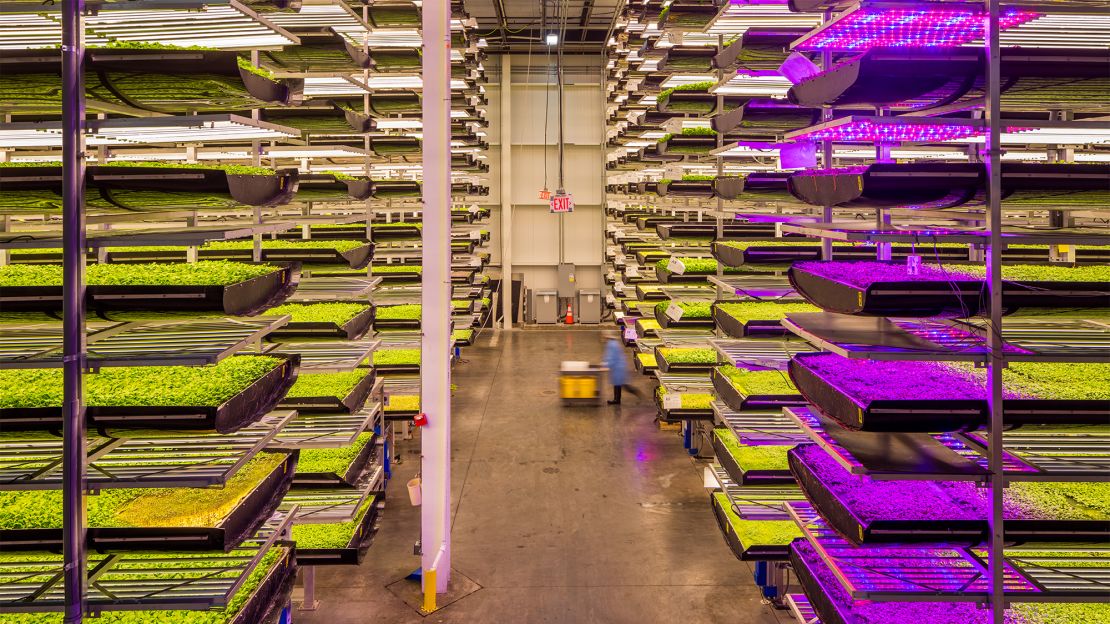
In addition to the mixed greens, the farm-fresh collaboration between Singapore and AeroFarms will focus on dark leafy varietals such as baby arugula, kale, mustard greens and bok choy – all of which are packed with vitamins and heralded for their crisp, clean taste.
December’s salad will begin with soy-poached chicken and feature a pickled ginger vinaigrette, AeroFarms Baby Pak Choi, zucchini ribbons and Japanese pumpkin or sweet potatoes.
“I think the key here is really we want the experience of the salad to be crunchy,” says McNeil.
Food revolution in the sky
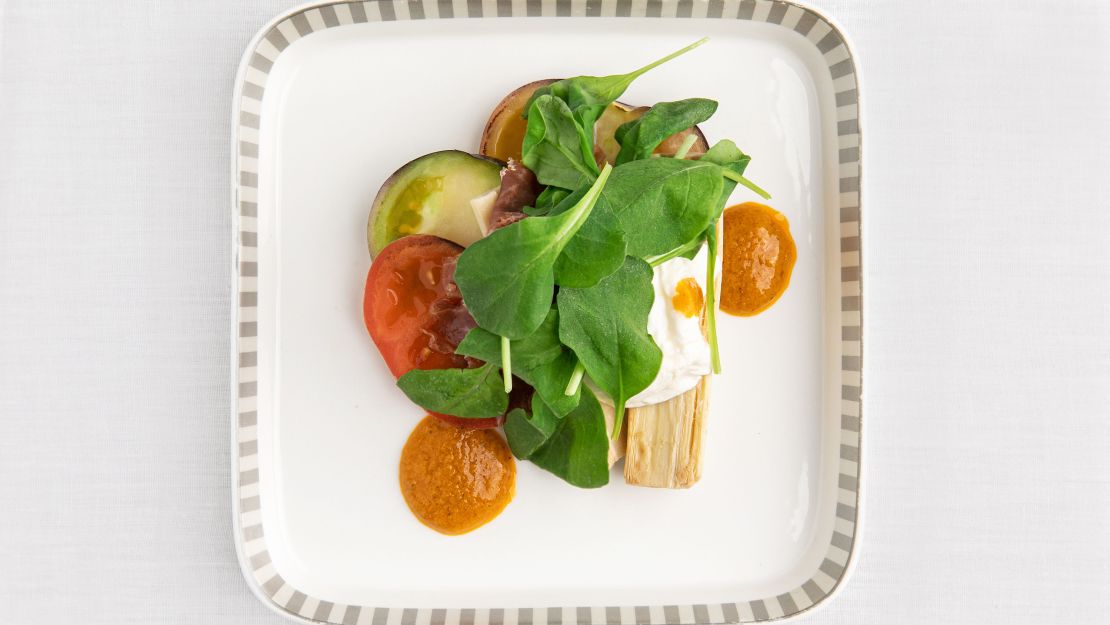
Singapore Airlines has always thought outside of the box when it comes to its culinary program, according to Zach Honig, the editor at large of travel site The Points Guy.
In spite of this most recent initiative, Honig doesn’t see it helping with ticket sales.
Many airlines, especially Asian and Middle Eastern carriers, have amped up their food and beverage offerings in recent years in a bid to win more customers, especially in their first and business classes.
But, as ticket purchases in these cabins tend to cost thousands of dollars more than a baseline ticket, passengers already expect more.
Paul Tumpowsky, co-founder and chief executive of the New York travel agency Skylark, agrees.
“Airlines are always trying to up their game in whatever they can, and as chefs and airlines increasingly discover how certain dishes taste better in the air than others, food is an easy way to do it,” he says.
Other carriers are also trying to raise the bar with their on-board meal service.
Turkish Airlines, for one, cooks eggs and steak to order for its business class passengers, and Delta Air Lines offers menus in business class on select routes that are created in partnership with notable chefs.
Singapore Airlines, however, may be inching toward a league of its own with cuisine that’s fresh, sustainably grown and naturally delicious.
The farm-to-plane dishes now being served on the Newark to Singapore route are just the beginning.
Singapore Airlines’ Boyd says that if the collaboration with AeroFarms is a success, the carrier wants to partner with more farms, both vertical and traditional, in its other major US markets. San Francisco, Los Angeles and Seattle could be next.
“Our goal is to give our passengers the option of enjoying the freshest produce in the skies, grown and delivered in a more environmentally sustainable way,” he says.












